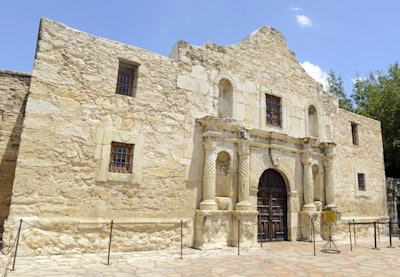
PETA has put up a billboard near the Alamo war memorial that reads, “Remember the Animals.” According to a press release from PETA, in addition to Remember the Animals, the billboard reads “The Battle Continues. It’s not just humans who seek independence.”
"Remember the Alamo" is a phrase that is commonly used as a battle cry in the Texans’ struggle for independence from Mexico. Various historical sites report that anywhere between 182 and 257 Texans died and approximately 600 Mexicans were killed or wounded.
“From humans to heifers, we’re all made of flesh and blood, feel pain and fear, value our own lives, and want our freedom,” said PETA President Ingrid Newkirk in the organizations press release. “PETA’s billboard invites history buffs to join a battle that’s still being waged today, and that’s the effort to keep animals off people’s plates and free to live as they please.”
I don’t see how comparing a war where human lives were lost to animals being humanely slaughtered for consumption is at all the same. I consider myself a bit of a history buff, hence my disgust with the invitation to join “a battle that’s still being waged today.”
Those of us involved with the poultry and livestock industries understand that a healthy, well taken-care-of animal is far more profitable than the despicable picture PETA paints of animal care in agriculture. Rarely will a person visit a farm to find livestock fighting for their independence. In fact, I have read multiple articles about the importance of low stress levels in broilers at harvest. I have had the pleasure of visiting a cage-free egg laying farm where the hens were calm enough, they could be picked up and rocked to sleep like a baby.
I hope this billboard backfires on PETA and that history buffs like myself will see the drastic difference in human lives lost in war for their independence and animals being bred, cared for and harvested by families to generate a valuable protein source for consumption.

















